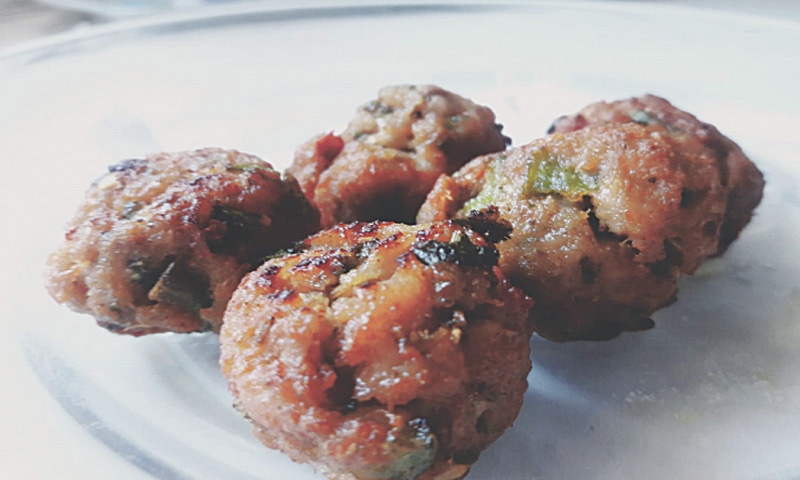Gluten-intolerant and craving roti? Look no further than the age-old bajray ki roti
The West may have recently discovered non-gluten alternatives such as millet but it has long been a part of our regional cuisine. Millets such as jowar [a variety of sorghum], bajra [pearl millet] and samo [buckwheat] have long been starring ingredients in many Sindhi, Gujrati and Memoni dishes.
Aside from the popular bajray ki roti, millet is used in dishes as varied as Memoni lahsan (roasted eggplant, yoghurt and crushed garlic with bajray ki roti), Kirng upma or thick and savoury samo porridge (made from sawa millet or barnyard millet) and bajray kay ladoos (pearl millet sweetmeats, made from flour, sesame seeds, ghee and jaggery).
In the past, millet has been given short shrift but not anymore. While not as well known as wheat, this indigenous cereal has been around for millennia and may have been grown by humans for the last 7,000 years.
With its shorter growing season, high-drought resistance, and ability to thrive in a hot, dry climate like South Asia’s, millet is in competition to replace wheat as global warming becomes worse. While it’s not as mainstream as wheat yet, it’s increasingly popular and, why not? It’s high in fibre, low in carbohydrates and sans additives (unlike white flour). It’s also a great gluten-free alternative.
Millet is a starring ingredient in many local, gluten-free dishes
Bajray Ki Roti
Gluten-intolerant and craving roti? Look no further than bajray ki roti. While the millet roti is thicker than the wheat version, it’s still a great companion for any vegetable or daal dish: nothing beats bajray ki roti with maash ki daal or spinach. You can also make a snack of the roti itself: simply add a pinch or two of red chilli powder and a finely chopped spring onion to the dough and have with yoghurt.
Ingredients
2 cups bajray ka atta [pearl millet flour]
½ teaspoon salt
½ cup hot water
Method
Add salt to the flour. Then add the half-cup hot water and rub the dry ingredients together till crumbles form. Keep on adding more hot water as needed and mix it all together till a dough forms. Knead for at least 10 minutes.
Massage the dough with the heel of your palm and stretch the dough. Repeat this step a few times.
Form the dough into a soft ball.
Break off a palm-sized bit of dough and place on a flat surface or a rolling board.
Dust with wheat flour and gently pat with your hands to flatten/thin out the dough ball. You can also place the dough on a rolling board and flatten the dough with a rolling pin.
Heat up the tawa or griddle.
Place the roti on the hot tawa and cook on one side for a bit, then flip it. Keep on flipping till both sides are brown. Now the roti is done. Brush with ghee, if desired.
Serve piping hot with vegetables or daal.

Bajray Ke Aatay Ke Kebab
Also known as Memoni Kebabs, bajray ke aatay ke kebab are unique to the Memon community. These kebabs, dipped in cool yoghurt or chutney, make for a great, light meal, especially during the long, hot summer days. Serve them piping hot or refrigerate them for a healthy midnight snack.
Ingredients
½ kg minced chicken
1 cup millet flour
1 egg
1 tablespoon yoghurt
2 medium onions or 1 large onion, finely chopped
2 tablespoon coriander, finely chopped
2 finely chopped green chillies (medium size, not the small, spicy ones), seeds removed
1 teaspoon minced ginger garlic mixture
1 teaspoon chilli flakes
1 to 1 ½ teaspoon salt
1 teaspoon coriander seeds, lightly ground
1 teaspoon cumin seeds

Method
Add all the spices in the chicken mince and mix thoroughly. Then add the onions, finely ground chillies, the ginger-garlic mix and coriander.
Leave aside for half an hour.
After half an hour, add millet flour and mix. Add the egg and yoghurt. And mix again. Set aside for half an hour.
Make the mixture into tiny one-inch kebab balls.
Heat oil in a deep pan and fry the kebabs. If the kebabs are too soft and are breaking apart, add in some more millet flour.
Serve with cooled yoghurt or chutney.
Originally published in Dawn, EOS, March 27, 2022













Comments